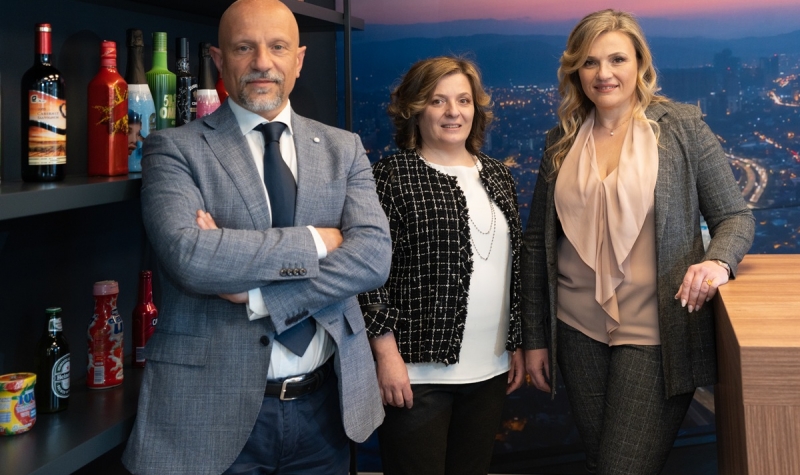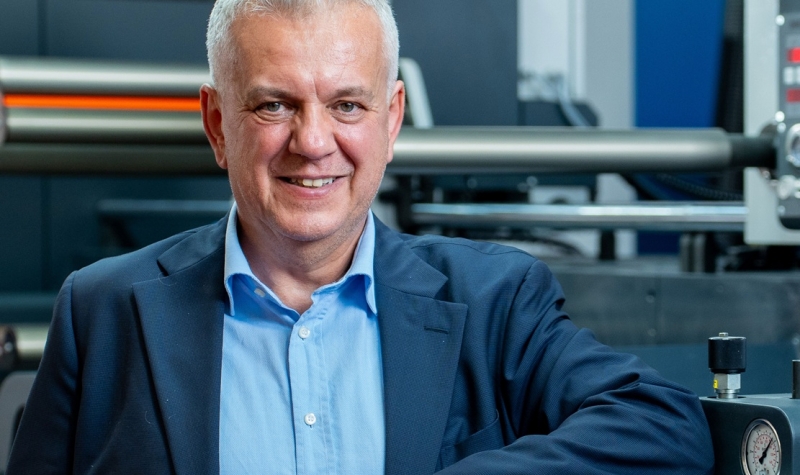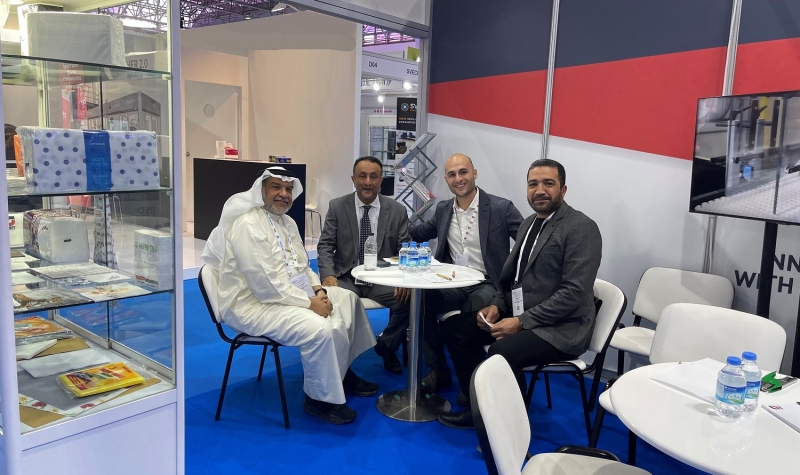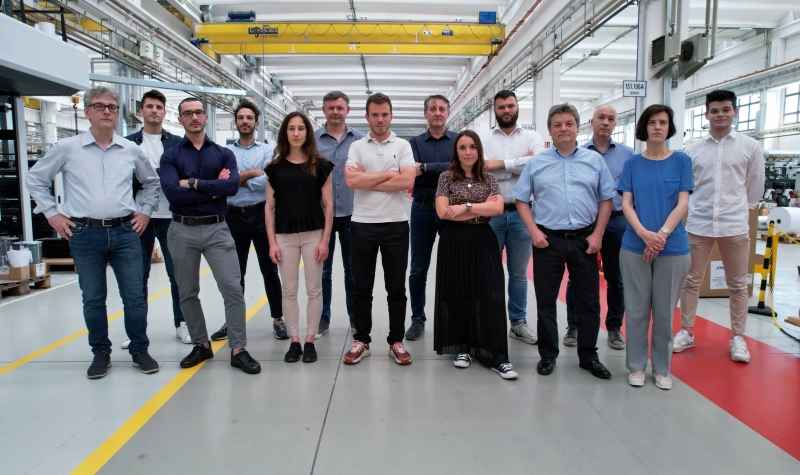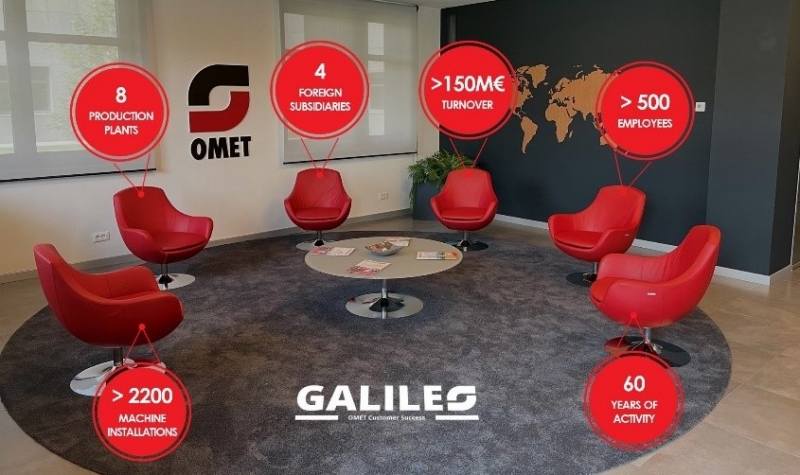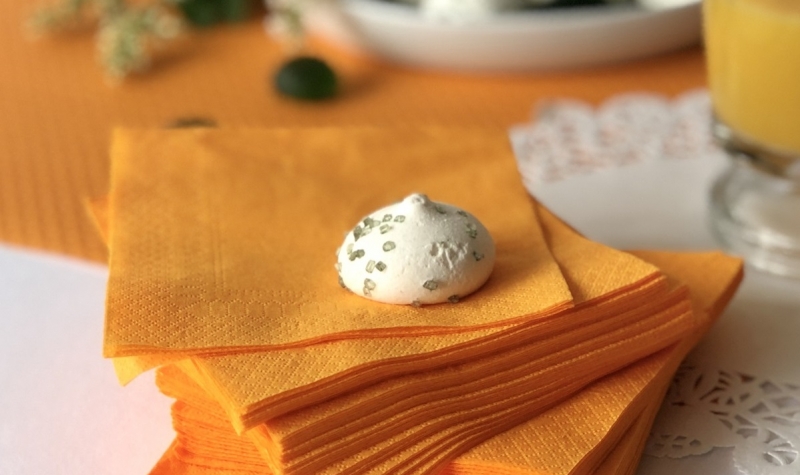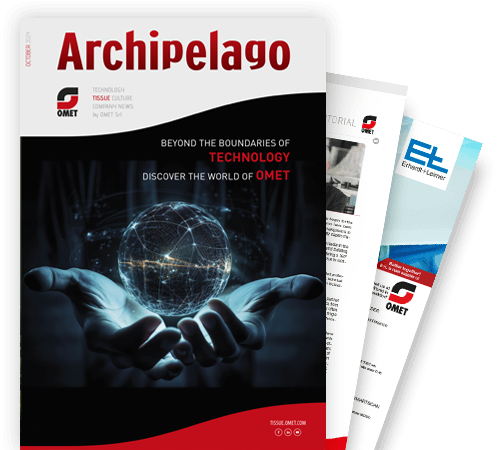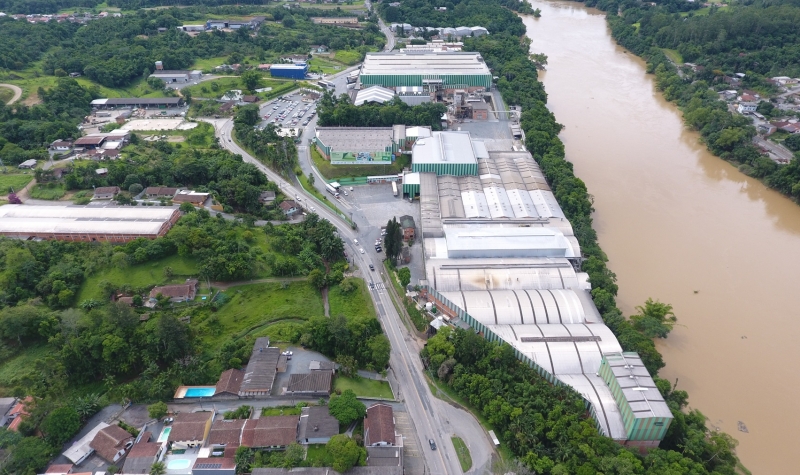
Brazil, IPEL’s growth passes through OMET technology
Sustainability, governance and digital transformation: these the growth drivers of IPEL, a Brazilian company of the tissue sector based in Indaial, south of Sao Paulo. Originally a small paper mill, after 40 years of business it’s now one of the largest Brazilian producers of toilet paper, paper towels and napkins, with over 800 employees. In this interview, Luciano de Liz Barboza – IPEL CEO – tells the company’s story and the recent choice to invest in the OMET technology, to break into the interfolding market by focusing on excellence and quality.
When, where, and by whom was IPEL founded? Who owns and runs it now?
IPEL was established in 1984 by Milton Mantau and Julio Dobuchak, both experienced professionals in the paper industry for many years. After the death of Mr. Mantau, his sons became owners together with Mr. Julio Dobuchak.
Currently the company is led by Luciano de Liz Barboza, since June 2021, in a process of corporate governance and professional business management. The partners are members of the Board of Directors, which was created about 10 years ago, and includes, in addition to the partners, three External Directors.
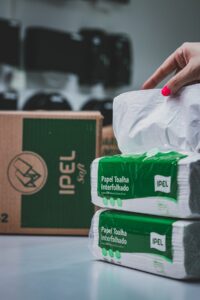 Tell us about the company’s development, its products and reference markets.
Tell us about the company’s development, its products and reference markets.
IPEL was established with a focus on the production of packaging papers, and in the 1990s, it shifted its production exclusively to tissue papers. At first, machinery was manifactured internally by IPEL itself, utilizing parts made by other industries or scrapyards.
In 2007 and in the following years we introduced three machines designed by Hergen. Now IPEL manufactures products for two markets:
– Retail/Home: single, double, triple and quadruple-ply toilet papers. Kitchen towels. Single and double-ply napkins.
– Professional: single, double and triple-ply paper towels. Jumbo roll Single and double-ply toilet papers. Single and double-ply interfolded toilet papers. Double-ply napkins.
How big is your company?
Today, IPEL has about 800 employees at the plant located in Indaial, Brazil. The plant is more than 60,000 m2. Currently, the company produces about 5.000 tons per month of paper in two qualities and various different grammages.
How are you organized in terms of production?
In addition to the 3 tissue paper machines that produce our semi-finished products, all in the 2.78m format, we work in two converting segments: domestic, with automatic machines for toilet paper, kitchen towels and napkins (a total of 4 converting lines); and professional, with automatic interfolding lines and semi-automatic rewinders (a total of 11 converting lines).
How did you find out about OMET machines and when did you decide to invest in our technology?
OMET’s machines are highly appreciated in our market. As our strategy was focused on the commercialization of premium products, we were looking for a partner/supplier that could deliver us quality and productivity.
While searching for automated interfolding lines at some industry fairs, we met E+S Gammerler Equipamentos Gráficos Ltda, in the person of Ivo De Rizzo. This meeting led to a visit to OMET’s facilities in Lecco and a subsequent test of our towel reels at a partner company in Switzerland.
Which OMET machine did you choose and why? Are you satisfied with the choice you have made in terms of performance and service?
We purchased the OMET AS 2850: we chose this model for its flexibility, several product options and the low energy consumption. We are satisfied with the machine, and the challenge is bringing Brazil closer to Italy to further improve service support, and a more agile parts replacement and service, at a more competitive price.
I see several opportunities to develop the area of services, spare parts and training for the operation team in our country.
How is your investment in OMET technology helping you grow your business?
 As our machine is unique in Brazil, we can say that we have a superior quality in our products when compared to the market. We are working in launching new products to grow in the Professional market: our plan is to consolidate the 1st place of the largest manufacturer of professional paper/tissue in Brazil.
As our machine is unique in Brazil, we can say that we have a superior quality in our products when compared to the market. We are working in launching new products to grow in the Professional market: our plan is to consolidate the 1st place of the largest manufacturer of professional paper/tissue in Brazil.
The OMET interfolding technology is also helping us to diversify our portfolio: today we have 2-ply (V fold), 3-ply (Z fold), single, double and triple-ply paper.
How are you positioned in the Brazilian market and what trends and growth prospects do you see in the short term?
In the retail segment, IPEL has about 2% of the national market share. It operates locally in the Southern States and Greater São Paulo areas, because this market is highly regionalized in our country. In the professional segment, IPEL is currently the market leader in sales.
IPEL operates throughout Brazil and exports to several countries such as Uruguay, Paraguay, Bolivia, Chile and Panama. Export accounts for about 5% of total turnover.
In your opinion, which are the areas most important to invest right now? How do you see the evolution of the market in the near future?
The market is consolidating in Brazil and in the rest of South America’s countries. This makes us even more strategic and competitive. In this moment, we are looking for skilled professionals and implementing the Internal Management System for monitoring KPIs, and indicators of extreme importance for the growth and sustainability of our business.
In sales, we are further improving Market Intelligence, by bringing in another professional with a focus on pricing. In the converting department IPEL is strengthening its rewinding equipment for the professional segment, in addition to some other machine improvements. In the industrial area, The focus is on improving paper quality, machine speed, energy savings and cost reduction.
 is the web magazine with all news about OMET Group
is the web magazine with all news about OMET Group 